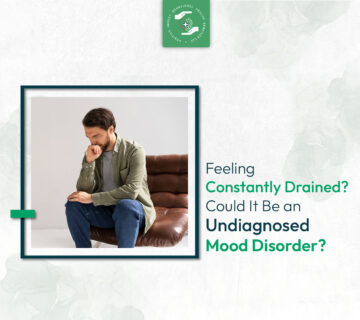In our fast-paced world, many of us are constantly on the go, leaving little time to address our mental well-being. Mindfulness coping is a valuable tool that can help us manage stress, anxiety, and other mental health challenges. But what exactly is mindfulness coping, and why is it so important for our mental health? In this blog, we will explore these questions and provide easy-to-understand explanations for this essential practice.
What is Mindfulness Coping?
Mindfulness coping involves staying present and fully engaging with the current moment. It’s about acknowledging thoughts and feelings without judgment, helping to reduce stress and improve mental clarity.
At its core, mindfulness coping is rooted in the concept of being aware of what is going on inside and around you. This ancient practice, which has been refined over thousands of years, emphasizes the importance of not letting your mind wander aimlessly or become overly fixated on past regrets or future anxieties. By fostering a state of focused awareness, mindfulness helps to keep you grounded in the present moment.
Interestingly, mindfulness coping doesn’t require any special equipment or setting. You can practice it while walking, eating, or even during routine tasks like brushing your teeth. The goal is to fully immerse yourself in the activity at hand, taking note of each sensation, thought, and feeling. This simple shift in attention can have profound effects on your mental well-being, making daily stressors more manageable.
How Does Mindfulness Affect Mental Health?
Practicing mindfulness can significantly impact mental health by reducing anxiety, decreasing depression symptoms, and increasing emotional regulation. It allows individuals to become more aware of their thoughts and feelings, leading to better mental health outcomes.
Studies have shown that mindfulness practices can activate regions of the brain associated with memory, learning, and emotion regulation. For example, a study supported by the National Institutes of Health revealed that mindfulness meditation is linked to measurable changes in the brain’s structure, enhancing its ability to manage emotions. This makes it a powerful tool for anyone dealing with mental health challenges.
Furthermore, mindfulness encourages a balanced perspective on emotions. Instead of reacting impulsively to stressors, individuals learn to approach their feelings with curiosity and compassion. This shift in mindset can help to mitigate the impact of negative emotions, reducing the likelihood of emotional overwhelm. By equipping yourself with these skills, you acknowledge and address feelings constructively, fostering greater resilience in the face of adversity.
Benefits of Mindfulness Coping
Mindfulness coping offers numerous benefits, including reduced stress, improved focus, enhanced emotional health, and better sleep quality. These advantages collectively contribute to overall mental well-being.
One of the most compelling benefits of mindfulness is its ability to reduce stress. By grounding yourself in the present moment, you break the cycle of constant worry and rumination, which are often the culprits behind chronic stress. This, in turn, has a cascading effect on your physical health, promoting a lower heart rate and reduced blood pressure.
In addition to stress reduction, mindfulness can also improve cognitive functions like focus and concentration. Many practitioners notice that they become more productive and less prone to distractions. This enhanced mental clarity can be particularly beneficial in environments where multi-tasking is necessary. Improved focus not only boosts efficiency but also helps in making better, more mindful decisions.
Another significant advantage of mindfulness coping is its impact on sleep. By easing the mind and reducing stress, mindfulness practices such as meditation and mindful breathing can lead to better sleep quality. A good night’s sleep is essential for mental health, as it helps the brain process emotions, consolidate memories, and rejuvenate for the day ahead.
Simple Mindfulness Techniques to Try
There are various simple techniques for practicing mindfulness, such as mindful breathing, body scan meditation, and mindful walking. These exercises can be easily integrated into daily routines to help manage stress and improve mental health.
One effective method is mindful breathing. This exercise involves focusing your attention on your breath, noticing each inhalation and exhalation without trying to change your natural rhythm. This simple technique can serve as an anchor, bringing your mind back to the present whenever it starts to wander. Whether you’re sitting in traffic or taking a break at work, mindful breathing offers a quick way to center yourself.
Another useful practice is the body scan meditation. This involves lying down comfortably and mentally scanning your body from head to toe, paying close attention to any areas of tension or discomfort. By acknowledging and observing these sensations without judgment, you cultivate a sense of deep relaxation and bodily awareness. This technique can become particularly effective before bedtime, helping to release the day’s accumulated stress.
Mindful walking is another technique that can seamlessly weave into daily life. As you walk, focus on the sensations in your feet and legs, the movement of your muscles, and the rhythm of your steps. By engaging your senses and observing your surroundings, you can transform a simple walk into a meditative practice that enhances your mental clarity and emotional well-being.
Integrating Mindfulness into Daily Life
To reap the full benefits of mindfulness coping, it’s essential to integrate these practices into daily life. This can be achieved by setting aside time for mindfulness exercises, incorporating mindful moments throughout the day, and being intentional about being present in various activities.
One way to integrate mindfulness into your day is by creating a dedicated space and time for practice. Whether it’s a quiet corner of your home or a nearby park, having a consistent place for mindfulness exercises can help form a routine. Many people find that starting or ending their day with a short mindfulness session sets a positive tone or helps unwind before bed.
Incorporating mindful moments into everyday tasks is another powerful approach. For instance, while eating, you might practice mindful eating by slowly savoring each bite, paying attention to textures, flavors, and smells. Such practices elevate mundane activities into opportunities for mindfulness, leading to greater enjoyment and reduced stress.
Another effective strategy is to use triggers as reminders to practice mindfulness. These triggers can be routine events such as waiting for a bus, hearing a notification sound, or finishing a meeting. Each time the trigger occurs, take a moment to pause, breathe deeply, and bring your awareness to the present. Over time, these micro-moments of mindfulness can accumulate, fostering a calm and balanced mindset.
It’s also beneficial to combine mindfulness with other emotional health services, such as family therapy or counseling. These services can provide additional support and structure, helping to maintain and deepen your mindfulness practice. By working with professionals, you receive personalized guidance that complements and enhances your mindfulness journey.
Embrace Mindfulness Coping for Better Mental Health
Mindfulness coping is more than just a trend; it’s a vital practice for maintaining and improving our mental health. By being aware of the present moment, understanding its benefits, practicing simple techniques, and integrating mindfulness into daily life, we can build resilience against stress and foster a healthier, more balanced mind.






No comment